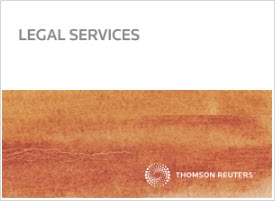Civil legal aid lawyer shortage acknowledged by Court of Appeal
The issue of civil legal aid lawyer availability is not new. See for example Civil Justice Watch “Where have all the lawyers gone? The shortage of civil legal aid providers” (13 August 2018) <civiljusticewatch.wordpress.com>, where it was said that the number of lawyers officially registered to provide civil legal aid “greatly overstates the number of lawyers actually available to take a case on a legal aid grant”. For insights from practitioners on the ground, see Frances Joychild QC “Continuing the Conversation … The Fading Star of the Rule of Law” [March 2015] At The Bar 15 (at <www.nzbar.org.nz>), Steven Zindel “The parlous state of civil access to justice in New Zealand” (2018) 920 LawTalk 54 (at <issuu.com>) and Steven Zindel “Fishy business with civil legal aid” (2019) 929 LawTalk 77 (at <issuu.com>).
Against that backdrop, in Alexander v Commissioner of Police [2024] NZCA 510 a 20-month extension of time to appeal civil forfeiture orders under the Criminal Proceeds (Recovery) Act 2009 (CPRA 2009) was granted where one of the relevant factors was the applicant’s difficulty in locating a civil legal aid lawyer for the appeal.
After outlining the case background, relevant legislation (Court of Appeal (Civil) Rules 2005, r 29A), leading case law (Almond v Read [2017] NZSC 80, [2017] 1 NZLR 801, (2017) 23 PRNZ 533) and ultimate question (what do the interests of justice require in the particular circumstances of the case), the Court of Appeal considered the submissions of both parties, including the applicant’s affidavit evidence that he had contacted 20 civil legal aid lawyers on a list supplied by the Legal Services Commissioner before one agreed to look at the case. On this point the Court said:
“[29] While the length of delay is significant, it is explained at least to some extent by Mr [A]’s affidavit … Clearly Mr [A] should have set out more detail, to properly address the timeline … , including the names of at least some of the counsel that he tried to contact. However, we accept that litigants find it difficult to procure advice on legal aid and some allowance should be made in this regard. Certainly, since Ms [H] agreed to represent Mr [A], the steps have been timely. From the date that the legal aid grant was communicated to Ms [H], it took her 36 working days to file the application, which in itself is not a straightforward matter. That is a reasonable amount of time for a busy lawyer, who is nonetheless prepared to take on legal aid work when many will not, to review the file and draft the application and supporting documents.”
The Court then considered further relevant issues (that weighed both for and against the applicant) before concluding that it was in the interests of justice to grant the extension of time.
It may be noted that a subsequent policy change within the legal aid system now allows criminal legal aid lawyers with level 4 approval (PAL 4) to provide legal aid services in civil proceedings under the CPRA 2009 (without needing to obtain civil approval first): see Ministry of Justice “Update on policy for Gangs Act 2024 and Criminal Proceeds (Recovery) Act 2009 civil proceedings” (21 November 2024) <www.justice.govt.nz>.
For more on civil legal aid and proceedings under the CPRA 2009, see Legal Services (online ed, Thomson Reuters) at [LA11.08] on Westlaw New Zealand. Regarding civil legal aid and Court of Appeal proceedings generally, see [LA60.03].
